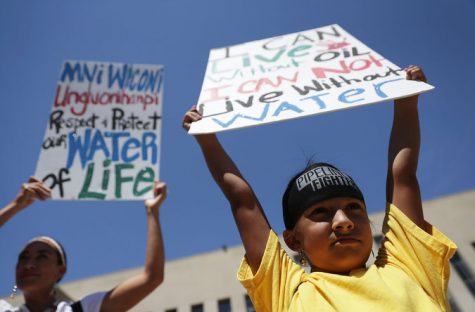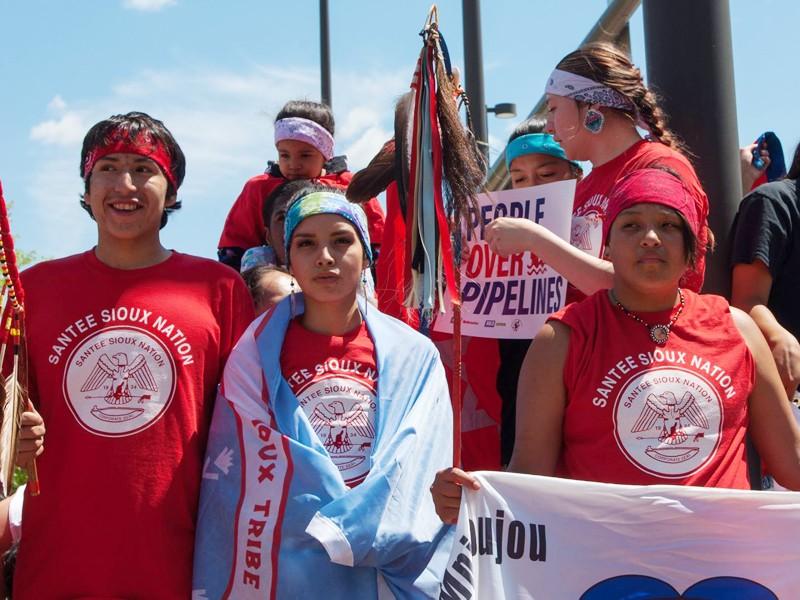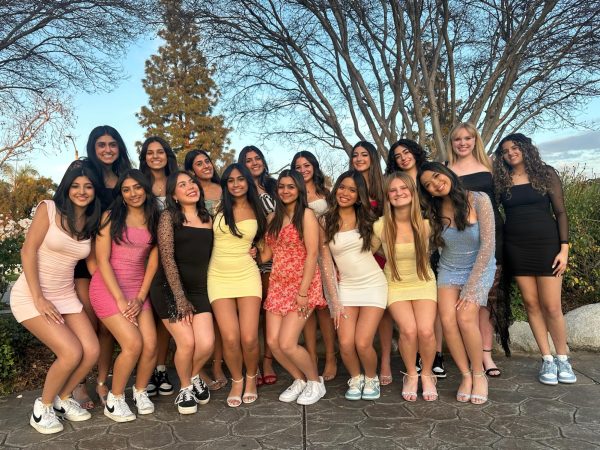The Dakota Access Pipeline
Is history repeating itself?
Photo courtesy of Mark Hefflinger
The American youth gather to propose a petition which would end the construction of the Dakota Access Pipeline.
A few hundred years ago, Christopher Columbus arrived in the Americas. The naive and hospitable Native Americans welcomed the Europeans with open arms, only to be treated as lesser beings. The Native Americans had their land taken from them, their families plagued with foreign diseases, and their loved ones enslaved in far away lands. Eventually, they were left with just one percent of their population remaining in the United States, and extremely small portions of land across the country.
Naturally, people would think that after the brutal genocide of the Native American race, the American people would seek to repay them for their sins. This is not true; the Dakota Access Pipeline is a prominent example that shows how the American people still don’t respect the Native Americans.
The Dakota Access Pipeline is a project that seeks to “transport crude oil from North Dakota through South Dakota and Iowa and into Illinois” (CNN). It is a long oil pipeline stretching 1,170 mile across four states. The Standing Rock Sioux tribe’s reservation lies just south of the pipeline’s path “across ranches and under the Missouri River” (New York Times). They are based in Fort Yates, and they are a federally recognized Indian tribe. Along with other tribes, the Standing Rock Sioux is protesting against the construction of this pipeline. They have filed a complaint in federal court that claims this project “threatens the Tribe’s environmental and economic well-being, and would damage and destroy sites of great historic, religious, and cultural significance” (CNN).
They fear the damage that will result if the pipeline were to break near the Missouri River. If this does occur, their drinking water would not be safe to consume (New York Times).

Omaka Nawicakinciji, 7, of the Oglala Lakota Nation in South Dakota, protests the Dakota Access pipeline alongside his mother, Heather Mendoza, in Washington.
Shailene Woodley, a well-known actress, is an active protester against the Dakota Access Pipeline. She appeared on Late Night with Seth Meyers alongside Bernie Sanders and talked about her first hand experience involving the protests. According to Daily Mail, Shailene attended the #enoughisenough rally in California to make a speech regarding the pipeline. She also joined the tribes in Washington, D.C. to protest for clean water.
Like Shailene Woodley, Ashley Bui-Tran (10) strongly opposes this government project. “The Native American people have been through enough poor treatment since the beginning of this country,” she says. “They deserve to at least live in peace on their land without the imposing oil companies searching for money they already have.”
As of now, the Obama administration has temporarily halted the construction of the Dakota Access Pipeline (The Atlantic). However, more people need to step up and join the protest against this project so that Native American land can be protected and preserved.

Amanda Chung is a senior at Yorba Linda High School. She has been a photojournalist for The Wrangler for three years now, and she also participates in...












